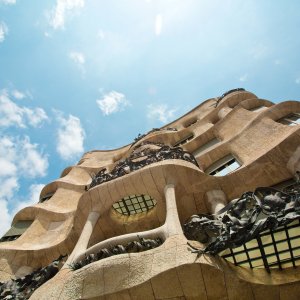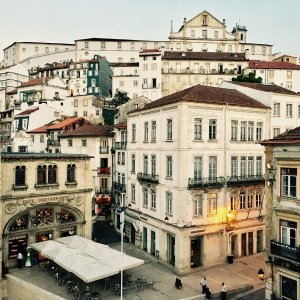Tenerife offers active tourism experiences that combine excitement and real sustainability. From ethical whale watching to interpretive hiking with Biosphere Certified companies.

Experience active tourism on the island of Tenerife.
Tenerife is not just a collection of postcards. It is a living territory that invites you to move with purpose. An island landscape that combines volcanoes, cloud forests, deep ocean, and unique biodiversity in Europe, becoming an ideal setting for active tourism and for those seeking authentic experiences with a positive impact.
The island offers a natural laboratory where sustainable tourism and mindful adventure meet. Here, excitement is combined with respect, and every activity can become a way to read the territory from a deeper perspective.
In addition, the island of Tenerife is part of the international network of sustainable destinations Biosphere and holds the Biosphere Certified designation, which verifies the real implementation of environmental, social, and governance practices. This destination framework ensures that your experience is better for you and better for the island.
How to read the island when practicing responsible active tourism.
Moving through Tenerife with respect involves three simple ideas that are key in any responsible active tourism proposal.
- Low-impact itineraries, prioritizing walking, cycling, and public transportation when possible.
- Choosing operators with verified certification, such as Biosphere Certified, to ensure truly sustainable practices.
- Integrating everyday decisions that protect wildlife, reduce waste, and support the local economy.
From this perspective, each activity stops being just an adventure and becomes a meaningful experience.
To illustrate this, we highlight two companies that represent success stories in integrating sustainability into their management and that are part of the international community of Biosphere Certified companies.
Ocean with science. Whale watching that leaves data, not a footprint.
The southwest coast of Tenerife, especially the Teno Rasca corridor, is one of the few places in the world where resident populations of short-finned pilot whales and bottlenose dolphins live. The difference between seeing and understanding lies in the method and ethics of observation.
Tenerife Dolphin, a certified Biosphere Certified active tourism company, operates under strict animal welfare criteria. It avoids chasing wildlife, respects observation times, controls regulated distances, and monitors the presence of marine debris. Its work incorporates measurable indicators that help analyze progress in its sustainability commitments.
On board, the experience becomes a micro-action of citizen science. Travelers can listen with a hydrophone when conditions allow, take responsible photographic records, or participate in small educational activities. All under an approach to sustainable marine tourism that prioritizes the health of the ecosystem.
And responsibility continues with small gestures: reef-safe sunscreen, silence when calves are present, respecting safety distance, and taking all waste back to the port. This is the model of responsible whale watching that allows enjoyment of the ocean without leaving a negative impact.
Laurisilva in first person. Walking slowly to listen to nature.
In the Anaga massif, the laurel forest filters Atlantic mists as it has for millions of years. Walking here is a sensory experience that leaves a mark on memory, but not on the environment, when practiced under sustainable tourism criteria.
El Cardón NaturExperience guides small groups through routes designed to read the landscape. Endemic species, living soils, micro-reserves, and the fragility of these ecosystems become protagonists.
This company, also Biosphere Certified, incorporates social commitments such as work–life balance, hiring vulnerable groups, and participating in solidarity projects on the island.
The hike is both technical and contemplative. It contributes to boosting the local economy through local guides and traditional businesses, while protecting the territory by avoiding off-trail erosion.
Responsible travelers can contribute greatly through small details: proper footwear that does not damage the terrain, respect for the forest’s silence, reusable water bottles, and avoiding collecting vegetation as souvenirs. Active tourism in Tenerife can be a balance between adrenaline, learning, and ethics.
How to read the island when practicing responsible active tourism.
Tenerife is a privileged setting for sustainable active tourism—a territory where volcanoes, laurel forests, and deep ocean invite you to move with intention. In this guide, we explore two responsible experiences, at sea and on land, that show how to travel the island with a low footprint and connect more authentically with one of the most unique destinations in the Atlantic.
Active tourism in Tenerife combines beauty, intensity, and responsibility when decisions are made thoughtfully. Choosing low-impact routes, operators with sustainable certification, and mindful habits allows the adventure to last beyond the photograph. Every gesture counts. A less-eroded trail, a cleaner sea, a stronger local economy.
Tenerife invites you to discover the territory responsibly, reminding us that sustainable tourism does not limit the experience—it enhances it. It offers depth, coherence, and a more honest connection with the island.

Active tourism and its relationship with the Sustainable Development Goals.
Responsible active tourism experiences in Tenerife contribute directly to several United Nations Sustainable Development Goals (SDGs). Ethical whale watching supports SDG 14 by protecting marine life and promoting sustainable ocean practices. Guided routes in the laurel forest strengthen SDG 15 by preserving terrestrial ecosystems and island biodiversity. Choosing Biosphere Certified companies contributes to SDG 12 by promoting responsible consumption and sustainable operational models.
In addition, the creation of quality local employment and the social inclusion present in these companies create a clear link to SDG 8, while the environmental awareness and education that accompany the experiences reinforce SDG 4. In this way, each traveler’s decision becomes part of a broader positive impact aligned with global sustainability.


















